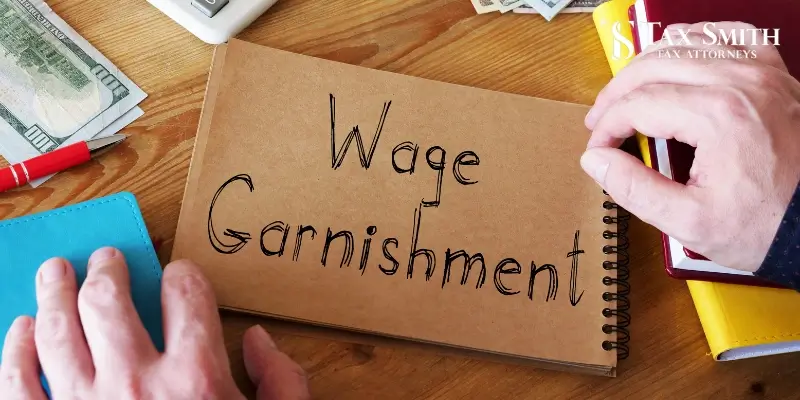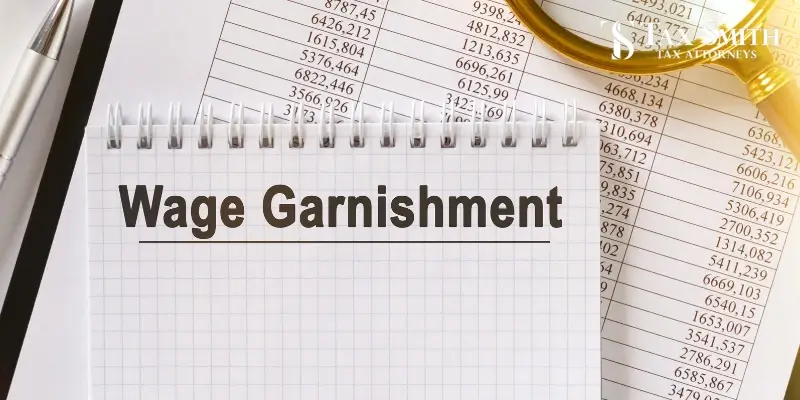1548 The Greens Way – Ste. 4 Jacksonville Beach FL 32250
Melbourne Wage Garnishment Lawyer
Melbourne Wage Garnishment Attorney
Facing wage garnishment can be destabilizing and terrifying. It can prevent you from meeting your daily needs and paying necessary bills. When you owe taxes to state or federal agencies, they can take several actions to recover the debt, including wage garnishment. The IRS (Internal Revenue Service) will collect the taxes it is owed, however possible. A Melbourne wage garnishment lawyer can help you navigate this stressful situation. Wage garnishment is just one part of tax debt. If you’re dealing with other tax problems, a local Melbourne state tax lawyer can help you find the best way to handle them.
There may be options to stop the garnishment of your wages or limit the amount being garnished. An attorney can help determine if you can settle the entirety of your tax debt for less. It is important that the tax professional you work with has the experience and ability to find the right tax debt solution for you.

Tax Smith Tax Attorneys: Supporting Taxpayers Throughout Melbourne
Wage garnishment is especially difficult for taxpayers who live paycheck to paycheck to cover their expenses. It’s important to act quickly before the financial consequences of the garnishment affect your life further. At Tax Smith Tax Attorneys, we have helped individual and business taxpayers throughout Florida communities address actions taken by state and federal tax agencies.
Our team understands how stressful tax collection actions are. While it can feel counterintuitive to hire an attorney when you are already in a financially difficult situation, an attorney can help you save significant money in the long run. The team at Tax Smith Tax Attorneys can review the options you have to settle your tax debt and determine what the ideal solution is for your situation.
Our firm’s goal is to bring you straightforward and accessible legal representation. We know that tax codes and taxes can be frustrating, and we want to help you manage your tax issues effectively.
Understanding Wage Garnishment in Melbourne
Wage garnishment removes a portion of your wages from your paycheck and sends them to the creditor with whom you have a debt. This debt could include child support payments, student loans, and consumer debts. While any creditor could potentially garnish your wages, state and federal tax agencies have fewer restrictions and requirements to engage in wage garnishment compared to other commercial creditors.
The IRS or the Florida Department of Revenue (DOR) do not garnish wages without warning. The agencies will only engage in wage garnishment and other collection tactics when they have tried to contact you and recover payments, but their attempts have been ignored. The IRS or DOR can notify your employer of the debt and require that your employer remove a specific percentage of your paycheck to send to the agency.
While other creditors must get court approval to garnish your wages, the IRS and DOR don’t have to. Your wages can continue to be garnished until your debt is paid in full. The agency may also take additional collection actions, such as placing levies or liens on your properties and accounts, to more quickly cover the debt.
What Does Wage Garnishment Affect?
Wage garnishment can affect income, including:
- Hourly wages.
- Salaried wages.
- Bonuses.
- Commissions.
- Other compensation fees.
- Governmental benefits.
- Self-employment accounts receivable.
Wage garnishment can affect different kinds of income in unique ways. Tax agencies cannot garnish as much from government benefits, such as military retirement benefits or Social Security benefits, but they can still garnish up to 15%.
Resolving Wage Garnishment
The easiest and quickest way to end wage garnishment is to pay off the tax debt you owe in full. When the IRS or DOR process this payment, garnishment will end shortly after. Unfortunately, most people who are facing wage garnishment do not have the financial ability to pay back their debt.
If you receive notice of wage garnishment or your wages have begun to be garnished, it is crucial to talk with a tax attorney. An attorney can review options for limiting or eliminating the amount garnished from your wages through options such as:
- Negotiating the percentage of your income that is garnished.
- Applying for the head of household exemption for DOR garnishment.
- Resolving the tax debt with a payment or an offer in compromise.
- Filing for bankruptcy

FAQs About Wage Garnishment Law in Melbourne,FL
How Do You Negotiate Wage Garnishment?
Before you negotiate wage garnishment, you should first attempt to pay off the debt in full. If you do not have the financial ability to do so, the tax agency that placed the garnishment may be open to other options if you can’t meet your basic expenses with the garnishment in place. You should talk with a tax attorney who can review options such as an installment agreement to potentially end wage garnishment.
What Is the Most That Can Be Garnished From Your Paycheck?
The most that creditors are allowed to garnish from your paycheck is the lower of the following:
- 25% of your income.
- Your disposable income that exceeds 30 times the U.S. minimum wage.
These limitations, however, do not apply to all creditors. The IRS and state tax agencies do not have these limitations when pursuing unpaid taxes. An experienced tax attorney can help you determine what limitations apply to tax agency garnishments.
How Can You Get Help With Wage Garnishment?
You can get help with wage garnishment by working with an experienced tax law attorney. When your wages are being garnished because of a tax debt, and you do not have the funds to pay back this debt, there may be other options for repaying the debt. This includes a lump sum payment, an installment agreement, or an offer in compromise. An attorney may also be able to negotiate down the amount of your wages that are garnished.
Can You Settle a Garnishment?
Yes, it may be possible to settle a garnishment, depending on your unique circumstances. Settling the garnishment is most effectively addressed by paying back the debt owed. If you cannot pay back the tax debt without putting yourself in financial hardship, and the garnishment prevents you from meeting your living expenses, there may be ways to negotiate your tax debt.
You could also apply for an exemption, such as the head of household exemption, to limit or end wage garnishment.
Addressing Tax Debt Collection Actions
If you have received notice of IRS or DOR collection actions, you should not ignore this. Contact Tax Smith Tax Attorneys today and determine what you can do to recover your financial stability and minimize the long-term consequences of collection actions.
Locations We Serve
- Alabama
- Arizona
- California
- Colorado
- Connecticut
- Delaware
- District of Columbia
- Florida – HQ
- Georgia
- Idaho
- Illinois
- Indiana
REQUEST A CONSULTATION
Please fill out the Contact Request Form and a Tax Attorney/Paralegal will call you
to discuss legal representation or to schedule your free initial consultation





